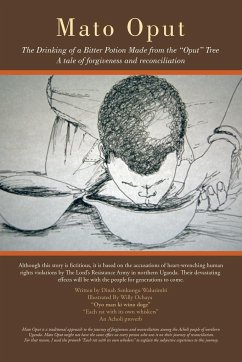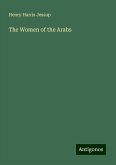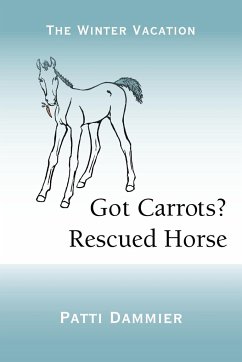Andere Kunden interessierten sich auch für
Produktdetails
- Verlag: Xlibris
- Seitenzahl: 108
- Erscheinungstermin: 22. April 2016
- Englisch
- Abmessung: 229mm x 152mm x 6mm
- Gewicht: 170g
- ISBN-13: 9781514405895
- ISBN-10: 151440589X
- Artikelnr.: 45115918
Hinweis: Dieser Artikel kann nur an eine deutsche Lieferadresse ausgeliefert werden.
- Libri GmbH
- Europaallee 1
- 36244 Bad Hersfeld
- gpsr@libri.de
Dinah shares a story of how during her first year in secondary school, her class was assigned a composition about a visit to Nalubabwe market. Nalubabwe market is similar to the American farmer's market, with individual vendors selling anything from produce to cooked foods and beverages. With a smile, she talks about how her composition was typed by the teacher (that was before the days of computers and word processors) and given out to all the three streams in senior one. With even a bigger smile, she talks about how she will never forget the feeling when almost the whole school was reading her composition during break time. Since then, she knew she wanted others to see what she sees through her writing. After living in the United States over twenty-three years, the decision to live abroad was a result of the numerous attacks her family had endured during one of the wars in Uganda. On her return to her village, she noticed that things had changed tremendously. A good number of children spend most of the day hanging around, riding Boda-bodas as a source of their income. (Boda-boda is a motorcycle taxi in Uganda with a fascinating origin. Boda-bodas were originally used to transport people between border posts. There is over half a mile between the border posts. Riders would solicit potential customers by calling out "Border-toborder," meaning transportation across the no-man's land. Currently, Boda-boda, sounding just like "Border-to-border," is a popular means of transport in the city and some villages.) During her visit, as she was sipping a cup of Ugandan tea, masala, with cream and sugar (reminiscent of the good old days in the village) and leafing through old newspapers, a news headline caught her attention: "Why Mato Oput system Should Come before ICC International Criminal Court" (New Visions, December 4, 2006). The article discussed how Mato Oput was a traditional way of dealing with conflict, as opposed to the ICC, which represented the western concept of justice. This was not the first time she had seen the term Mato Oput in the news. She asked a son of her friend what Mato Oput was. He grimaced, and after a long pause, he said, "It is a primitive custom, you don't want to know." That answer made her even more curious to learn more about this practice. It is with great honor and humility that she takes you to Acholiland.








